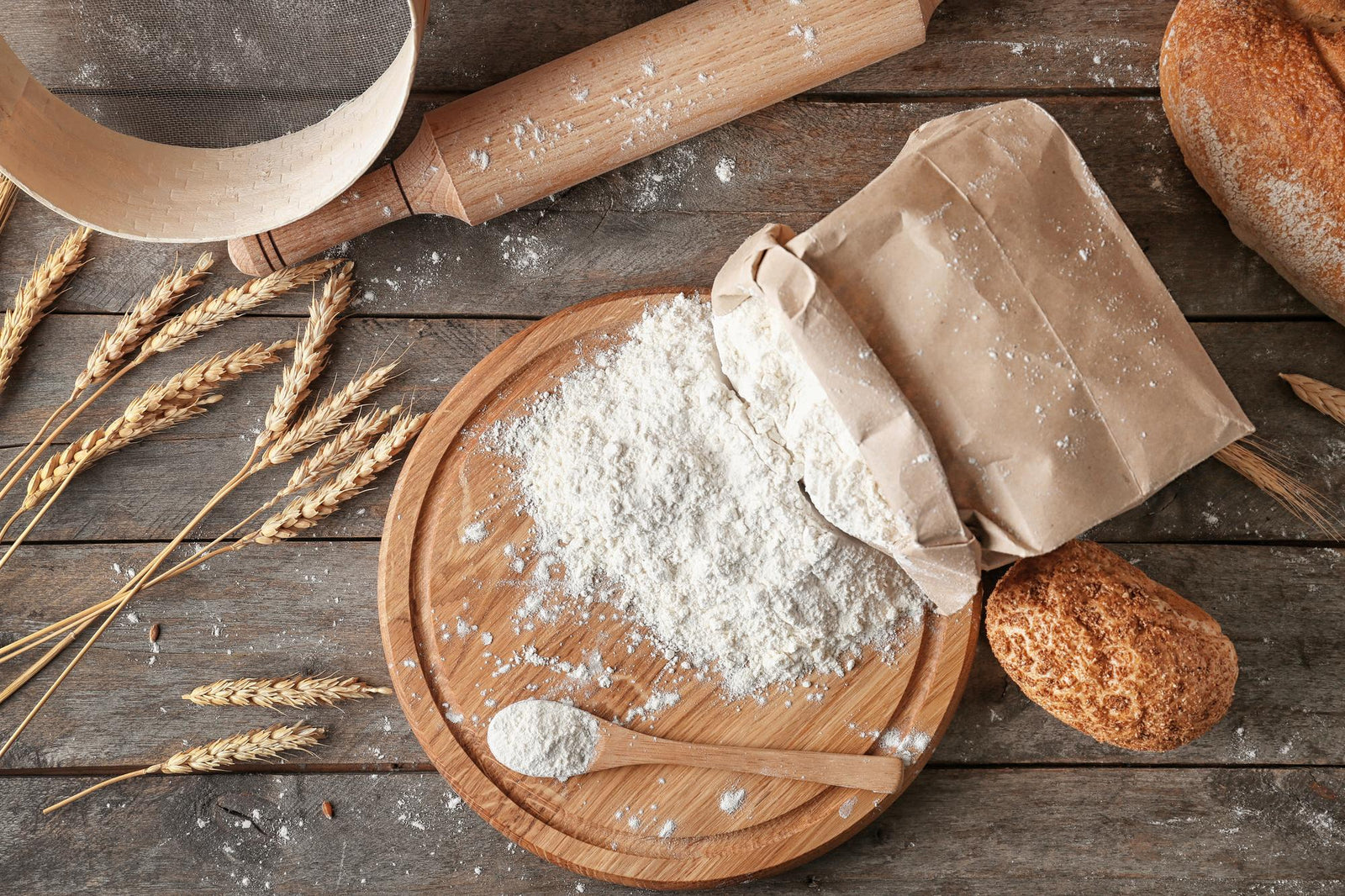
March 27, 2024 3 min read
In recent years, there has been a resurgence of interest in ancient grains like einkorn flour, touted for their potential health benefits and unique flavor profiles. As more people seek alternatives to modern wheat flour, it's essential to understand the differences between these two types of grains. In this article, we'll explore the distinctions between einkorn flour and modern wheat, shedding light on their nutritional composition, culinary characteristics, and potential implications for health.

Origins and History
Einkorn flour, revered for its ancient lineage, boasts a storied past that spans millennia. Originating in the Fertile Crescentof the Near East, einkorn was among the earliest grains cultivated by ancient civilizations, cherished for its resilience, adaptability, and nourishing properties. Its evolution has been characterized by minimal genetic modification, preserving many of its original traits and genetic diversity. In contrast, modern wheat, a product of extensive breeding efforts and genetic manipulation, represents a departure from the natural evolution of ancient grains. While these advancements have led to increased yields and improved agronomic traits, they have also raised questions about the potential impact on nutritional integrity and digestibility.
Nutritional Composition
A critical aspect of the comparison between einkorn flour and modern wheat lies in their nutritional compositions. Einkorn flour, revered for its superior nutrient density, offers a wealth of essential vitamins, minerals, and antioxidant compounds. Rich in protein, einkorn flour provides a substantial source of essential amino acids necessary for muscle repair and growth. Furthermore, it boasts higher levels of essential minerals like iron, zinc, and magnesium, crucial for supporting various physiological functions, including immunity, energy metabolism, and bone health. Additionally, einkorn flour contains antioxidant compounds such as lutein and beta-carotene, which contribute to its vibrant color and potential health benefits. In contrast, modern wheat, while still a valuable source of nutrients, may exhibit lower levels of certain vitamins and minerals due to genetic modifications and intensive agricultural practices.
Gluten Content and Digestibility
Perhaps one of the most significant differentiators between einkorn flour and modern wheat lies in their gluten content and digestibility. Gluten, a protein complex found in wheat and related grains, plays a pivotal role in the texture and structure of baked goods. Einkorn flour, characterized by its lower gluten content compared to modern wheat, offers a potential alternative for individuals with gluten sensitivities or intolerances. Some individuals report experiencing fewer digestive discomforts when consuming products made with einkorn flour, attributing it to its unique gluten composition and digestibility. However, it is essential to note that einkorn flour is not entirely gluten-free and may still pose challenges for individuals with celiac disease or severe gluten allergies.
Culinary Characteristics
In the realm of culinary exploration, einkorn flour distinguishes itself with its distinctive flavor profile and versatile applications. With its nutty, slightly sweet taste and delicate texture, einkorn flour imparts a nuanced complexity to baked goods, elevating them to new heights of flavor and enjoyment. From artisanal bread and rustic pastries to wholesome pancakes and delectable cookies, einkorn flour lends itself admirably to a myriad of culinary creations. Its ability to produce tender, moist crumb and subtle sweetness makes it a favorite among home bakers and professional chefs alike, adding depth and dimension to dishes with every bite.

Conclusion
Einkorn flour offers a rich nutritional profile, unique flavor, and potential digestive benefits that make it an appealing alternative to modern wheat for many individuals. Whether you're looking to experiment with new flavors, explore ancient culinary traditions, or simply enjoy the health benefits of whole grains, einkorn flour is worth considering for your next baking adventure.
Einkorn Wheat Wonders: Crafting Healthy Christmas Breads and Pastries
❤ Try our USDA certified organic Einkorn Wheat Berries or Einkorn Flour❤
Comments will be approved before showing up.

January 27, 2025 3 min read
Flaxseed, the tiny yet powerful superfood, is packed with nutrients that can support weight loss. From curbing hunger to stabilizing blood sugar, this guide dives into the science of how flaxseed can help you shed those extra pounds.

December 11, 2024 3 min read
Discover three quick and easy soup recipes featuring organic small red beans. From a classic vegetable soup to a creamy potato blend, these wholesome recipes are perfect for chilly days and busy weeknights. Packed with flavor and nutrition, these soups will warm your heart and soul this winter!

December 06, 2024 3 min read
This vibrant and nutritious Green Lentil Salad combines tender lentils with grilled chicken, fresh vegetables, and a zesty lemon dressing. Packed with protein, fiber, and essential vitamins, it’s the perfect healthy meal for any time of day.
© 2026 Be Still Farms- Real, Fine Organics.
Privacy | Terms | Refund Policy | Organic Certification
